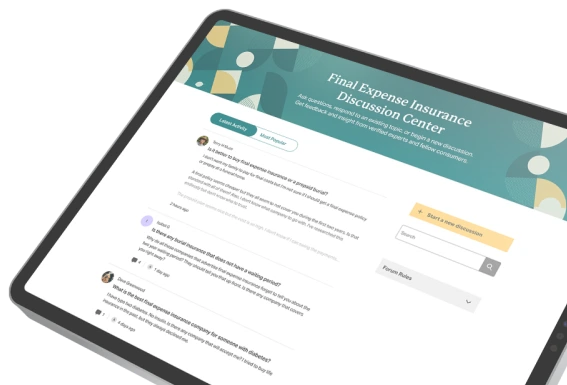It can be uncomfortable making end-of-life plans, but it’s necessary. With a will, one of the most important documents you’ll ever create, you can legally ensure your plans are respected.
Dying without a will means your desires for your assets are left up to the court, possibly placing stress on your loved ones. Unfortunately, this is common, where over 50% of U.S. survey respondents had a loved one who died without a will.
The good news is that you can write a simple will without help from a lawyer or second party. Just make sure it follows the legal requirements for validity, such as having witnesses sign. Learn how to write a will correctly and efficiently with this step-by-step guide.
10 Steps To Write A Will
While sorting through assets is often extensive, drafting the actual will can be quite simple. Below is a basic breakdown of key factors in a will to use for guidance.
Last Will And Testament Of [Full Legal Name]
[INTRO] I [your full legal name], residing at [residential address], being of sound mind, declare this document as my Last Will and Testament.
1. [EXECUTOR]
I appoint [individual’s full legal name] as the sole Executor of this will.
2. [CARE OF DEPENDENTS]
I appoint [individual’s full legal name] as guardianship of [child(ren)’s full legal name] and/or [pets’ names].
3. [DISTRIBUTION OF ASSETS]
After my death, I wish to give the following properties [individually listed assets] to the following beneficiaries.
4. [LIST OF BENEFICIARIES]
[beneficiaries’ full legal names] + [designated asset]
5. [FUNERAL INSTRUCTIONS]
Upon my death, I would like to be [funeral/burial wishes]
6. [RESIDUARY CLAUSES]
I proclaim any remaining/unnamed assets to [beneficiary and/or organization]. [Additional miscellaneous requests].
Signed,
[YOUR SIGNATURE] [DATE]
[WITNESSES LEGAL NAMES + SIGNATURES] [DATE]
1. Create a title and intros
A straightforward yet important detail to start your will is with a title and introduction. This helps ensure that anyone who finds the document will know it is your last will and testament. You should have your full legal name at the beginning of the will, as well as an indication that it is the most current version.
2. Appoint an executor
Next, name who you want to be the executor, which is the person responsible for carrying out your will and distributing your assets. Having an executor is one of the most important steps of making a will, so you’ll want it to be someone you trust.
It’s common to name an estate planning attorney as the executor, who serves as an unbiased party. You can also name a backup executor if the primary one passes away before you do.
3. Determine guardianship/care of dependents
If you have children or dependents under the age of 18, state who you’d like to take care of them if you and their other parents die. You can also name guardianship over any pets.
Choose someone you trust to name as the guardian, as this person will take full legal and physical custody of your children after your passing. Be sure to list their full legal name. You can also elaborate on the types of financial support for your dependents in the will, such as access to any trusts set up in their name.
4. Assign distribution of assets
Take inventory of all your assets, listing out any possessions that belong to you or are titled in your name. Common assets include real estate property, such as residential and vacation homes, and personal property, such as vehicles and bank accounts.
Clearly describe each asset in your will and check state rules about what types of assets cannot be included. It’s also a good idea to take any debt into account, such as a mortgage and future funeral costs, that you intend your estate to recoup.
5. List your beneficiaries
Name your beneficiaries, the individuals you want as the designated parties receiving your assets. It’s a good idea to list their full legal names to avoid confusion. You can also name a business or organization as a beneficiary if you don’t have children or want them as the only beneficiaries.
6. Specify funeral and burial instructions
Your will is also an opportunity to express your end-of-life arrangements, such as planning and paying for a funeral. You can specify if you’d like a burial, cremation, or an alternative memorial.
7. Add residuary clauses
Not to be overlooked, residuary clauses will cover anything else not mentioned or forgotten in your assets. This could be a letter of wishes detailing who gets certain family heirlooms, digital assets, and charitable gifts.
You can leave everything remaining to a specific beneficiary or divide fixed sums among your named beneficiaries.
8. Sign and notarize
Your signature before witnesses is a requirement to make the will legally binding. The witnesses have to sign it as well. Most states require individuals of at least 18 years who have nothing to gain from your death to witness and sign your will. The number of witnesses varies by state, as well as rules on who can and cannot be a witness.
The notarization process of wills also differs per state, where some may require a notary. A notary certifies you were in sound mind or mentally capable when writing and signing the will.
9. Copy and store
After completing the will, you’ll want to store it somewhere safe. Popular safekeeping options include in a safety deposit box, with your lawyer, or at a probate court. You’ll also need to inform your executor and beneficiaries so they can access the will after you’re gone.
It is helpful to make a copy of the original will, such as a digital copy online. While copies of wills aren’t accepted in a court of law, they can provide proof that the original will exists if it was misplaced.
10. Keep the will up-to-date
Lastly, make sure you revisit your will periodically and after major life changes, such as marriage, buying a house, and the birth of a child. Also, consider revisiting it every two to three years. Even if no life-changing event has happened, you may change your mind about something.
You can make changes to a will by adding an addendum or revoking the old will and drawing up a new one. The latter option will require a new signature and witnesses.
Considerations
As with most legal documents, wills can differ based on your unique situation. Here are a few things to consider before drafting your will.
Method of writing the will
There are different ways to write a will:
- By yourself: The fastest and cheapest way to write a will.
- Software templates: Downloadable forms with fill-in-the-blank options.
- Online services: Hiring professional and certified will writers for guidance.
- Estate planning lawyers: The professional and traditional way.
Seeking professional legal advice
If you have a more complex situation, such as high assets, a divorce and remarriage, or an adoption, hiring an estate planning attorney can help. As an attorney, they can provide the best advice for your unique situation from a professional, unbiased position.
Local legal aid offices and law schools may also offer free advice. They’ll know what is valid in your state and can help ensure everything is accurate.
Other estate planning documents
There are alternative legal documents that work similarly to a will and help support it, depending on your circumstances. These include:
- Trusts: Similar to a will in ensuring assets go directly to your beneficiaries, while also having financial and tax advantages.
- Living wills: Another type of will that states your wishes for medical treatment or a third party to make decisions on your behalf.
FAQ
Your estate will go into probate court, where your assets will be divided and distributed by a judge according to the laws of your state. In probate court, rights and accessibility to your assets can be difficult for your loved ones to win.
It’s not mandatory to have a will, but it is highly recommended. Even if your loved ones know your preferences when you’re gone, they won’t have any control or authority over your assets when your estate is in probate court.
The best time to write a will depends on your individual situation. Generally, those who have children or have built up wealth, such as through property and investments, are encouraged to write a will sooner rather than later.
Complement Your Estate Planning With Funeral Insurance
Remember, even a short and simple will is still legally binding. Having your wishes in writing can help eliminate any legal complications in your absence. In addition to having a will, final expense insurance takes care of funeral coverage as well as many other end-of-life expenses, providing financial relief to your loved ones.








